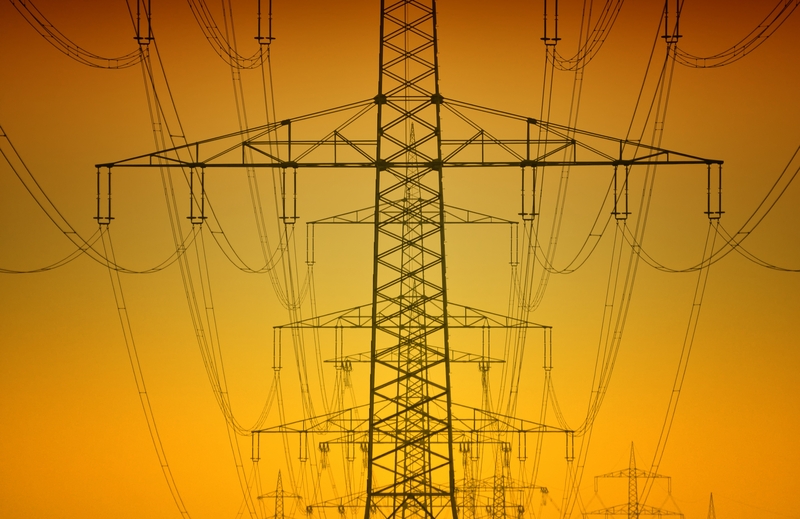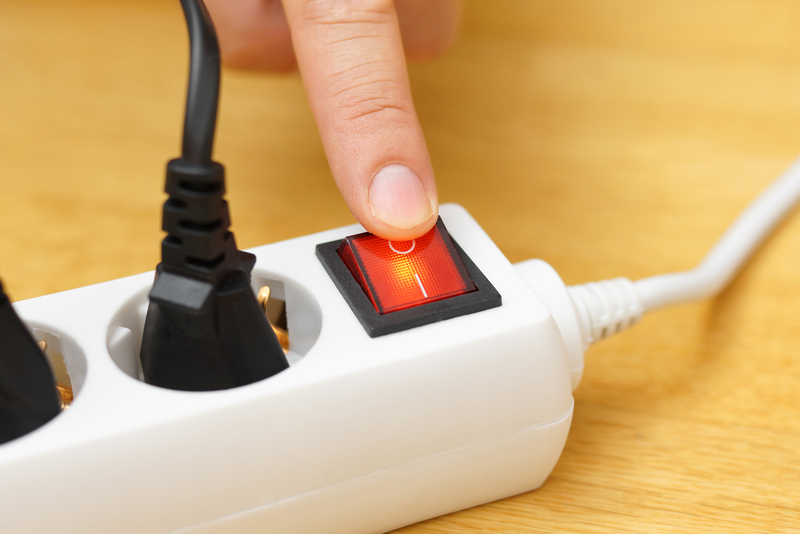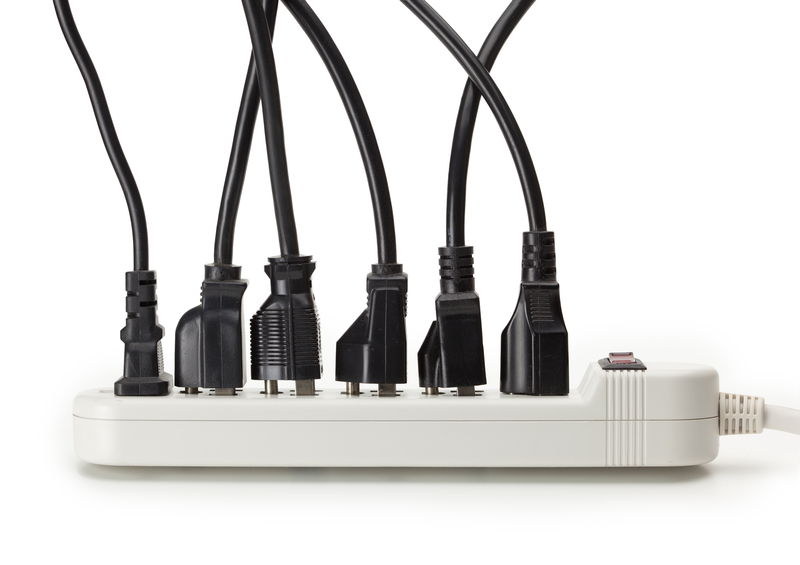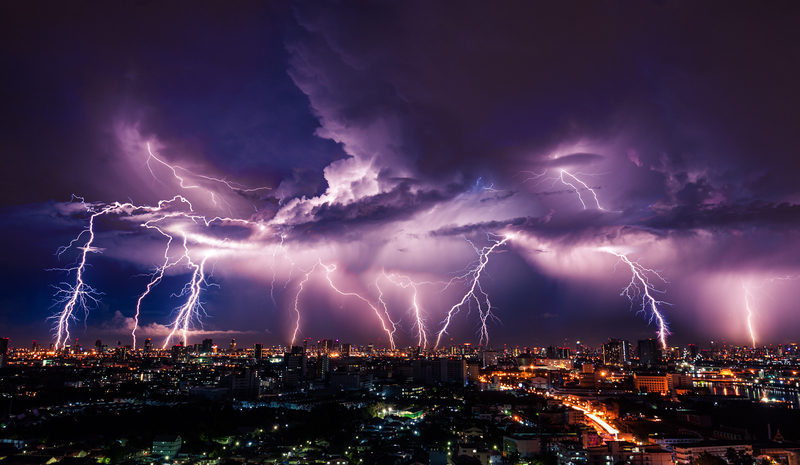This article is your complete guide to a brownout vs blackout! Power outages, whether due to weather, accidents, or other events, are experiences shared by households and small businesses alike. While both brownouts and blackouts signify power disturbances, a brownout notably differs by not resulting in a complete loss of power. We’re here to demystify these terms for the everyday electricity user, ensuring you’re well-informed about these common power issues.
Here at The Energy Professor, we want to give you the information you need to not only save money on your energy bill but to also become more energy efficient. We hope find this post helpful! And makes it easier for you to know more about blackout vs brownout. Be sure to also check out our one-of-a-kind energy savings calculator!
The Energy Professor Electricity Rate Check Tool
What is the Difference Between Blackout and Brownout?

Comparing a brownout to a blackout reveals that brownouts are significantly less disruptive. A blackout means a complete loss of power to your home or business, while a brownout results in reduced voltage, allowing for limited electrical use. Brownouts typically occur when utility companies, either deliberately or accidentally, lower the electricity voltage supplied to consumers. In contrast, during a blackout, expect all devices connected to the main grid to cease functioning, highlighting the stark difference in impact between these two types of power disruptions.
Blackout vs Brown Out
- Blackout: A complete power shut-off from your electric provider.
- Brown Out: Electricity is still flowing into your home or business but the voltage is significantly less. You can use smaller electrical devices such as lights or essential electric devices.
The major difference between a brownout and a blackout is that during a brownout, you will not lose full power. Also as you can imagine sometimes brownouts can be intentional to avoid major disruption. Whereas blackouts are not planned or coordinated and can take longer to recover from.
Related Post: What is a Rolling Blackout?
What is a Brownout?

During extreme weather, the increased use of appliances and HVAC systems by individuals and small businesses can push utility providers close to their electricity production limits, risking a blackout. To avert this, providers may reduce the voltage, known as a brownout. In a brownout, electrical voltage dips below normal, dimming lights and impairing or halting the operation of some devices. While less severe than a blackout, brownouts still disrupt daily activities, necessitating unplugging sensitive electronics to prevent damage. Proactively conserving the electricity supply during peak times is also advisable to help prevent the occurrence of brownouts.
What Causes Brown Out Power Reductions?
- A brown outage mostly occurs when the utility company is over or near the capacity of their electricity limits.
Electrical brownouts typically happen during severe weather events or periods of excessively high electricity demand. The excessive use of power puts immense strain on the electrical grid. This situation often leads to utility companies reducing the electricity supply to homes as they approach or exceed their capacity limits. Opting for a brownout to avoid the more severe consequence of a total blackout.
What is a Rolling Brownout?
Rolling brownouts are different from regular brownouts in that, a utility company will only reduce the power supply for certain areas. These areas then rotate so that there isn’t one area that experiences the brownout longer than others. This can avoid the occurrence of a blackout from there being too much of a power spike on the grid.
Related Post: How to Switch Energy Suppliers
What are the Dangers of a Brownout Event?

It is important to note that when experiencing a brownout event, you have to be mindful of your power consumption. When a brownout occurs, your voltage capacity is significantly reduced, therefore, it can put your electrical devices in danger of damage. When there is a drastic change in power, some devices are sensitive to electricity fluctuation and can be destroyed.
What to Unplug During a Brown Out
- Television
- Refrigerator
- Dishwasher
- Washer/Dryer
- Microwave
- Desktop Computer
- Anything with a power cord
- Powerstrips
To prevent any of your appliances or electrical devices from brownout damage, it is best to limit usage or completely unplug the device until the brownout is over. Not only will this save your device, but it can also shorten the time of your brownout. The only way to stop an intentional brownout is to return the balance of power consumption to production to a sustainable level.
Related Post: How Does Geothermal Energy Work?
What is a Blackout?

So, what is a blackout? The power outage definition of a blackout is when there is a short or long-term state loss of electrical power in a certain area associated with a power grid. Sometimes blackouts can last for hours, sometimes even days or weeks depending on what caused the power outage. And, there are many reasons why one might experience a blackout with their electricity.
What is a Blackout?
- When there is short or long-term state loss of electrical power in a certain area associated with a power grid.
What Causes a Blackout of Electricity?
- Imbalance of power consumption to power generation
- Electricity supply lines being damaged
- Powerful storms that knock out power supply
- Falling trees or branches
- Transformers being damaged
- Ice storms or heavy rains that damage power lines
- Lightning storms
- Damage from digging underground
There are many reasons blackouts may occur. The list above is just one of the main reasons we have seen blackouts happen. But be aware that blackouts happen for a multitude of reasons!
Related Post: Complete Guide to Electric Delivery Vs Electric Supply
Brownout vs Blackout FAQ

Q: What is a Blackout?
A: When there is short or long-term state loss of electrical power in a certain area associated with a power grid.
Q: What is a Brown Out Power Outage?
A: A voltage reduction to your home or small business by your electric company. Usually, this will occur during events of extreme weather situations.
Q: What Causes a Brown Out Power Reduction?
A: The brown outage mostly occurs when the utility company is over or near the capacity of their electricity limits.
Q: What Should I Unplug During a Brownout?
A: You should unplug anything with a power cord! This includes TVs, refrigerators, dishwashers, washers, and dryers just to name a few.
Q: What is a Brownout vs. blackout?
A: A blackout is a complete power shut-off from your electric provider. A brownout means that energy will still be delivered to your residence but the voltage will be decreased.
Q: What is a Rolling Blackout?
A: A rolling blackout is when your utility company lets you know in advance that they will be shutting off your power temporarily.
Do you Need Cheaper Electricity?
If you’ve taken the time to understand the information on your bill and discovered you’re paying more than you’d like for your electricity, have you looked around for a cheaper deal? The Energy Professor has a wealth of information on ways to save on your utilities, including details of top deals that could significantly reduce your monthly or quarterly electricity bills.
We hope you found this article helpful! If you are looking for ways to increase the energy efficiency and sustainability in your home be sure to take a look at all of the latest renewable energy options in your area. The Energy Professor helps residential and small business owners find qualified energy suppliers in New York, New Jersey, Pennsylvania, Texas, Ohio, Maryland, Illinois, and Massachusetts.


